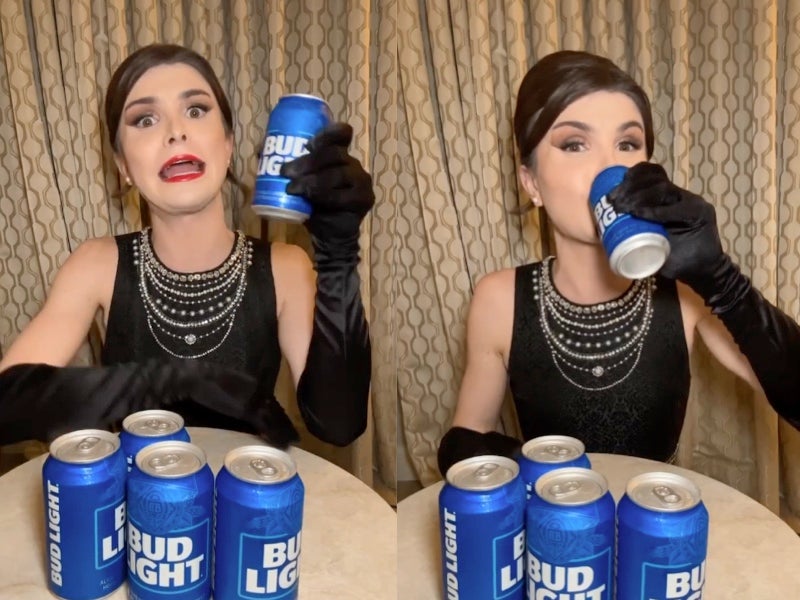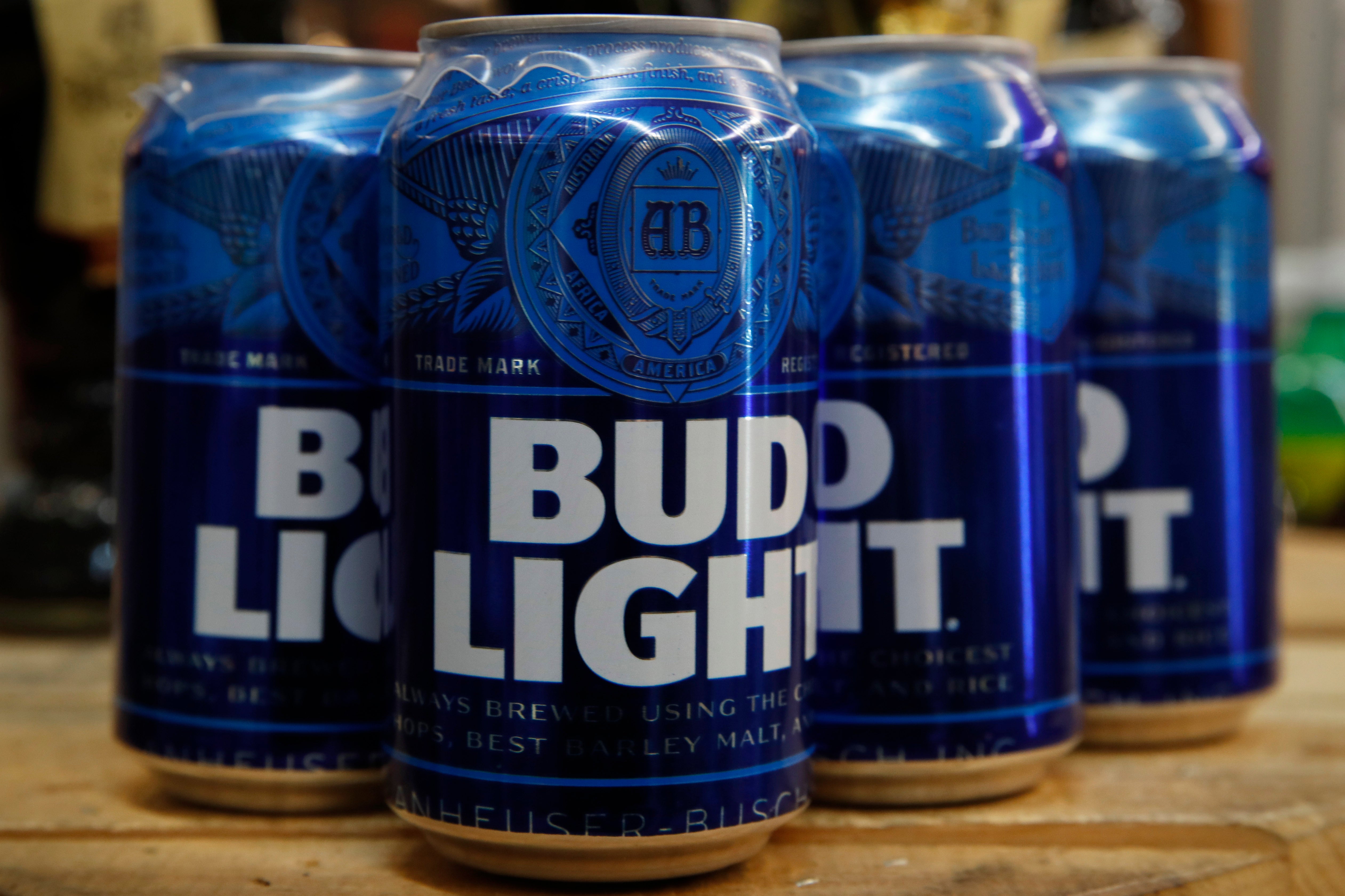The Independent's journalism is supported by our readers. When you purchase through links on our site, we may earn commission.
Bud Light reveals cost of sales hit after trans influencer backlash
Bud Light, Anheuser-Busch InBev’s best-selling beer, faced a backlash after it partnered with Dylan Mulvaney

Your support helps us to tell the story
From reproductive rights to climate change to Big Tech, The Independent is on the ground when the story is developing. Whether it's investigating the financials of Elon Musk's pro-Trump PAC or producing our latest documentary, 'The A Word', which shines a light on the American women fighting for reproductive rights, we know how important it is to parse out the facts from the messaging.
At such a critical moment in US history, we need reporters on the ground. Your donation allows us to keep sending journalists to speak to both sides of the story.
The Independent is trusted by Americans across the entire political spectrum. And unlike many other quality news outlets, we choose not to lock Americans out of our reporting and analysis with paywalls. We believe quality journalism should be available to everyone, paid for by those who can afford it.
Your support makes all the difference.Multinational beer maker Anheuser-Busch InBev — brewers of Budweiser, Bud Light, Stella Artois and Corona — celebrated a 7% increase in operating profit on Thursday.
This is despite the company admitting to a decline in sales in America, especially in Bud Light.
US revenue declined 9.5% for the year and 17.3% in the fourth quarter, “primarily due to the volume decline of Bud Light,” the company said in an earnings news release.
The beer, the company’s best-selling brand, faced a conservative backlash last year over a partnership with a transgender influencer.
Operating earnings, which exclude financial factors such as interest and taxes, rose 7% to $19.98 billion in 2023. That's the figure the company uses to demonstrate its underlying performance.
Full-year profit declined to $6.89 billion from $7.60 billion the year before. Total revenue rose 7.8% to $59.38 billion. The company’s CEO Michel Doukeris cited “another year of consistent profitable growth” in which it reduced debt and saw its credit rating upgraded.
The earnings news came hours after the company avoided a strike by 5,000 of its US workers as negotiators reached an agreement late on Wednesday.

The company did better in Europe, where it increased revenue despite declining volumes and grew operating profit. Profits rose in China.
The company said it would increase its dividend to shareholders by 9% to 82 cents per share.
The Leuven, Belgium-based company is facing declining beer sales in the US, where drinkers are increasingly opting for spirits, hard seltzers and alcohol-free beverages.
Bud Light, its best-selling brand there, faced a conservative backlash last year after it sent a commemorative can to transgender activist Dylan Mulvaney.
Transgender rights supporters also deserted the brand, saying it didn’t do enough to support Mulvaney.
Mulvaney herself accused Bud Light of failing to support her amid the transphobic backlash she’s faced since the partnership.
In July last year the influencer, 26, shared a video to TikTok addressing the months of “bullying and transphobia,” with Mulvaney claiming Bud Light did not “publicly stand by” her amid the right-wing backlash over a sponsorship deal between herself and the brand in April.
“For a company to hire a trans person and then not publicly stand by them is worse, in my opinion, than not hiring a trans person at all,” she said.
Brendan Whitworth, the CEO of Bud Light’s parent company Anheuser-Busch InBev, appeared on CBS Mornings to address the backlash. However, after claiming “Bud Light should be all about bringing people together,” he declined to answer directly when asked whether the campaign featuring Mulvaney was a mistake.
In her TikTok video, Mulvaney recalled how the backlash began after she posted an Instagram video in April of her drinking Bud Light while dressed up as Audrey Hepburn. She said the sponsored clip for the brand, which was part of the beer company’s March Madness campaign, led to more “bullying and transphobia than [she] could have ever imagined”.
“I should have made this video months ago, but I didn’t,” she said. “I was scared of more backlash, and I felt personally guilty for what transpired. So I patiently waited for things to get better, but surprise, they haven’t really.”